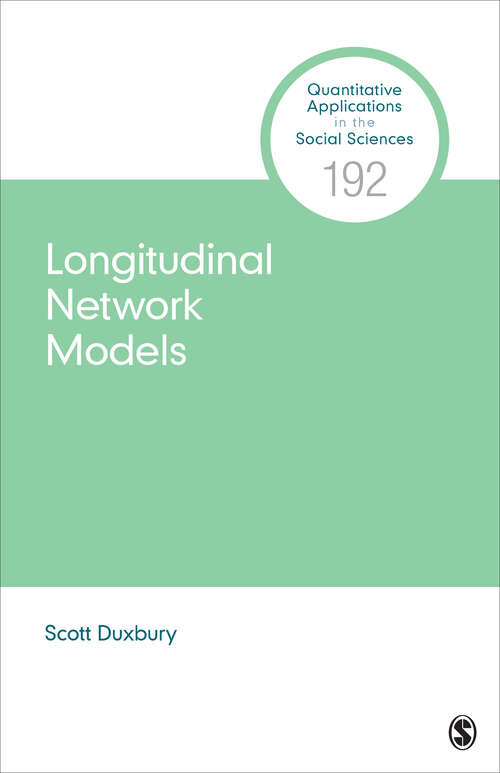
Longitudinal Network Models (Quantitative Applications in the Social Sciences)
General non-fiction
Synthetic audio, Automated braille
Summary
Although longitudinal social network data are increasingly collected, there are few guides on how to navigate the range of available tools for longitudinal network analysis. The applied social scientist is left to wonder: Which model is most appropriate for my… data? How should I get started with this modeling strategy? And how do I know if my model is any good? This book answers these questions. Author Scott Duxbury assumes that the reader is familiar with network measurement, description, and notation, and is versed in regression analysis, but is likely unfamiliar with statistical network methods. The goal of the book is to guide readers towards choosing, applying, assessing, and interpreting a longitudinal network model, and each chapter is organized with a specific data structure or research question in mind. A companion website includes data and R code to replicate the examples in the book.